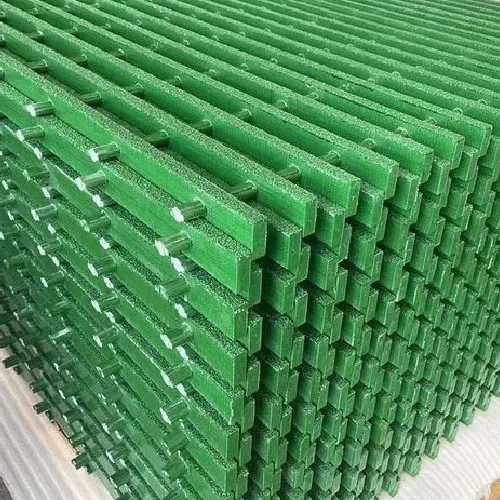loading...
- No. 9, Xingyuan South Street, Dongwaihuan Road, Zaoqiang County, Hengshui, Hebei, China
- admin@zjcomposites.com
- +86 15097380338
- Welcome to visit our website!
frp roof deck
Understanding FRP Roof Decks Benefits and Applications
Fiber Reinforced Polymer (FRP) roof decks are becoming an increasingly popular choice in the construction industry due to their unique properties and numerous benefits. This article delves into what FRP roof decks are, their advantages, applications, and considerations for application.
What is FRP?
Fiber Reinforced Polymer (FRP) is a composite material that combines a polymer matrix with an embedded fiber material, typically glass or carbon. This combination offers high strength-to-weight ratios, excellent corrosion resistance, and durability, making it an ideal choice for various construction applications, particularly in environments where traditional materials may fail or degrade.
The Advantages of FRP Roof Decks
1. Lightweight Nature One of the most significant advantages of FRP roof decks is their lightweight nature. Compared to traditional concrete or metal decks, FRP is considerably lighter, which reduces the overall weight of the structure. This attribute can lead to easier handling and installation, as well as reduced transportation costs.
2. Corrosion Resistance FRP is highly resistant to corrosion, which makes it a perfect choice for applications in aggressive environments, such as coastal areas or industrial settings where exposure to chemicals is prevalent. Traditional materials often suffer from rust and corrosion, leading to higher maintenance costs over time.
3. High Strength and Durability Despite its lightweight properties, FRP offers impressive tensile strength and durability. It can withstand significant loads and is less prone to cracking or breaking under stress, making it suitable for high-traffic areas or buildings that require long spans.
4. Thermal Insulation FRP materials generally provide good thermal insulation, contributing to energy efficiency in buildings. They can help maintain a stable interior temperature, reducing the reliance on heating and cooling systems and ultimately leading to energy savings.
5. Design Flexibility FRP can be molded into various shapes and sizes, giving architects and builders greater design flexibility. It can accommodate complex architectural features without the limitations imposed by more rigid materials.
6. Low Maintenance Requirements The durability and corrosion resistance of FRP roof decks mean that they require minimal maintenance over their lifespan. This trait can result in cost savings over time, as building owners can allocate fewer resources to upkeep.
frp roof deck

Applications of FRP Roof Decks
FRP roof decks are versatile and can be applied in various settings
1. Commercial Buildings From retail spaces to offices, FRP roof decks can offer better performance and aesthetics in commercial settings. Their lightweight and durable qualities make them an excellent choice for new constructions or retrofitting existing structures.
2. Industrial Facilities Warehouses, manufacturing plants, and other industrial facilities benefit from FRP’s resistance to aggressive chemicals and environments. These roofs can withstand heavy loads and provide safe work conditions.
3. Parking Structures With their high strength and lightweight properties, FRP roof decks are often used in multi-story parking garages. This helps minimize the load on the structural framework while providing long-term durability against environmental factors.
4. Recreational Areas FRP is also applicable in designing roofs for recreational spaces such as stadiums and pools where aesthetics and functionality are crucial.
Considerations
While FRP roof decks offer numerous advantages, there are some considerations to keep in mind. The initial cost of FRP can be higher compared to traditional materials, which might deter some stakeholders. However, when evaluating life-cycle costs, including maintenance and durability, FRP may provide a better financial outcome in the long run.
Additionally, the installation process requires skilled labor to ensure proper application and performance. Builders must be familiar with the specific requirements of working with FRP to maximize its benefits.
Conclusion
In conclusion, FRP roof decks are a revolutionary building solution that offers numerous advantages over traditional materials. Their lightweight, corrosion-resistant properties, combined with high strength and low maintenance needs, make them an attractive option for a variety of commercial, industrial, and recreational applications. As the construction industry continues to evolve, FRP materials are likely to play an increasingly significant role in creating efficient, durable, and environmentally friendly structures. By understanding the potential and applications of FRP roof decks, stakeholders can make informed decisions that enhance the performance and longevity of their buildings.
-
The Rise of FRP Profiles: Strong, Lightweight, and Built to LastNewsJul.14,2025
-
SMC Panel Tanks: A Modern Water Storage Solution for All EnvironmentsNewsJul.14,2025
-
GRP Grating: A Modern Solution for Safe and Durable Access SystemsNewsJul.14,2025
-
Galvanized Steel Water Tanks: Durable, Reliable, and Ready for UseNewsJul.14,2025
-
FRP Mini Mesh Grating: The Safer, Smarter Flooring SolutionNewsJul.14,2025
-
Exploring FRP Vessels: Durable Solutions for Modern Fluid HandlingNewsJul.14,2025
-
GRP Structures: The Future of Lightweight, High-Performance EngineeringNewsJun.20,2025
